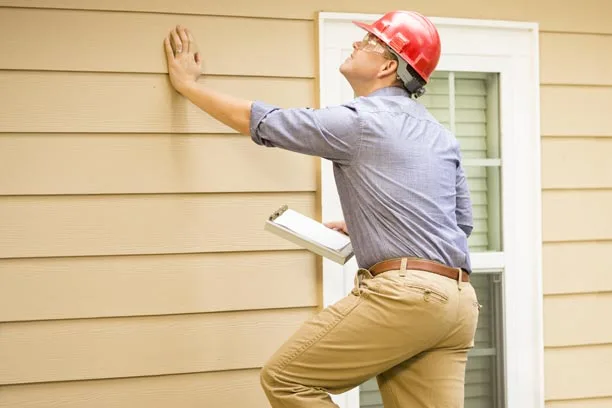How to Pass a Home Inspection: 6 Easy Steps


Congratulations! You’ve found a buyer and landed a satisfying offer, and you’re ready to move forward. One big hurdle remains: you’re going to have to pass a home inspection. It can be a nerve-wracking time, and it might feel like passing a home inspection is like taking a final exam in school. But if you do your homework, you’ve got nothing to fear in passing a home inspection.
Assuming your home isn’t a money pit in need of major repairs, you can feel prepared with these home inspection tips and tricks. Here’s a home inspection checklist for sellers.
As you prepare for your home inspection, start outside. Trim tree branches that hang over your roof or are growing too close to the house. You may want to consider getting some help: call an arborist or professional trimmer to do the job right.
Then walk the perimeter of your home. Make sure all dirt and mulch is at least six inches away from siding. Prune shrubbery or decorative landscaping back so it’s about a foot from any structure. (Don’t forget to check if your landscaping is a plus or minus for your home.) Finally, mow the lawn, rake fallen leaves and remove any debris from the property. Pull firewood and anything else that’s stored against the house away from the structure.
If you want to pass your home inspection, you’ll need to inspect your home’s siding for any issues like peeling paint, warped boards, gaps and so on. Pay close attention to caulking and weather stripping around windows and doors. Look for any exposed nails and make sure they’re properly hammered in. You’ll also want to search for cracks in the foundation. In addition to checking your roofing for damage, clean your gutters and make sure they are in good working order.
Inside the house, do a check as well. Make sure all doors and windows function properly and don’t stick or creak. Test all your smoke alarms. Once you have your list of repairs, make them yourself or hire a professional to be sure they’re done right.
Test each of your sinks, showers and tub drains for clogs. Check all the faucets in your bathrooms, kitchen, laundry room and other rooms for drips. Don’t forget to look under sinks for any leaks as well. Flush toilets and make sure none of them run.
You’ll also want to make sure that water hasn’t gone where it’s not meant to be. So, look in your crawl space for dripping. Check around the house for water damage and old leaks that need repairing. Don’t forget to leave the pilot light on for your water heater.
Work your way through each room in the house, checking that every light fixture has a working bulb. Then work your way through the outlets, testing to make sure each of them works. Replace your furnace filters with clean ones if you haven’t already. Make sure heating and cooling units are clean and accessible.
Remove any stored items and debris from these lesser-used spaces. Make sure the entrances to these areas are fully accessible and clean. Check for proper ventilation, and make sure those vents are clear.
Be sure to clean your home as thoroughly as possible. It’s likely that it’s spotless already since you’ve probably been maintaining its cleanliness for home viewings during the selling process. But remember, your inspector will be getting into all the nooks and crannies, even the ones that buyers might not have noticed.
Clear any remaining clutter. Your inspector will need easy access to appliances, attic and crawl spaces, toilets, faucets, fixtures, and heating and cooling intakes. Clean your oven, empty the dishwasher. Don’t leave laundry in the washer or dryer.
When the time for the inspection arrives, make sure you’ve unlocked yard gates, crawl spaces and attics. Leave the house about 30 minutes beforehand, and either take pets with you or make sure they are safely in their kennels.
We hope you nail your inspection and have a terrific move! Our moving checklist will help you stay organized. And as you get ready to move into a new home, contact your Farm Bureau agent to make sure you’re covered properly.